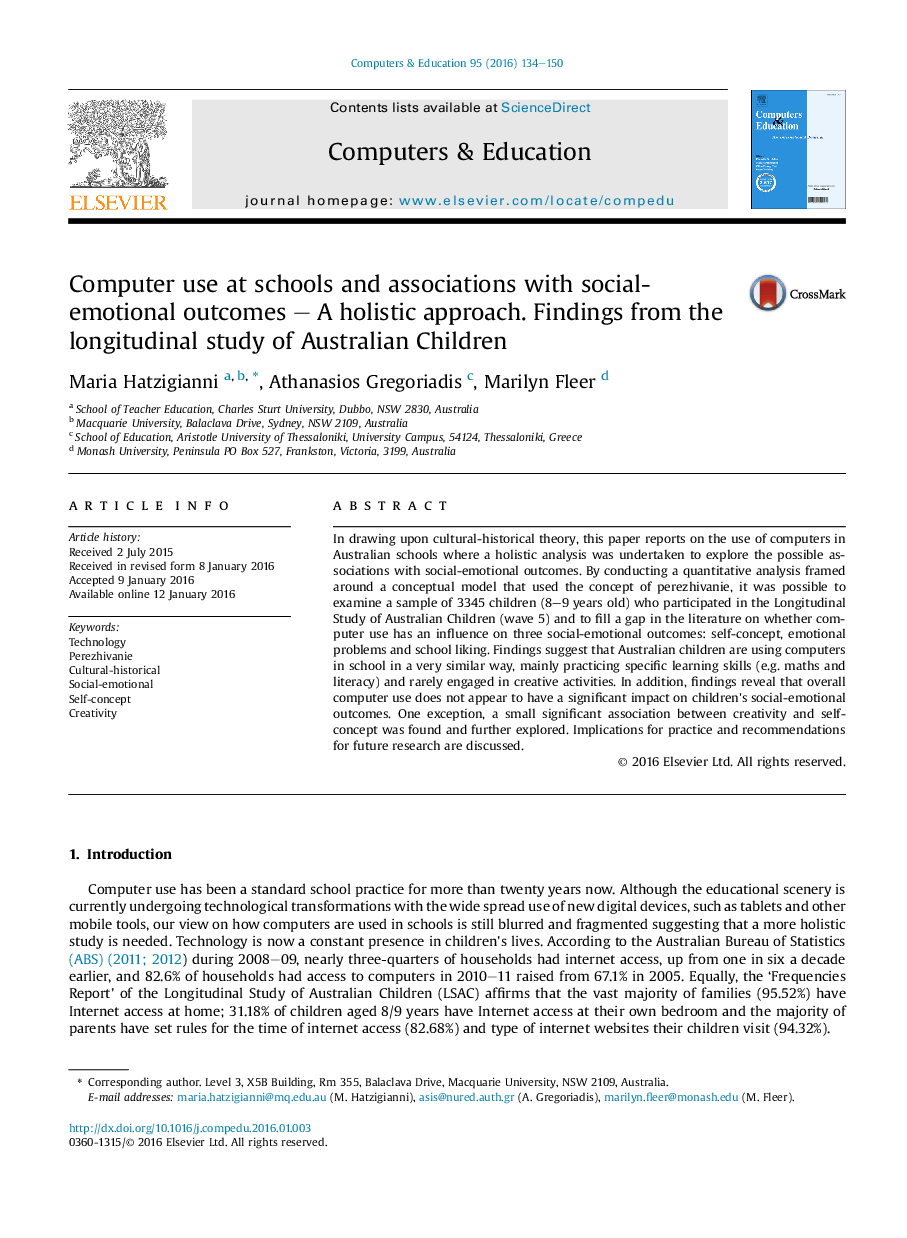| Article ID | Journal | Published Year | Pages | File Type |
|---|---|---|---|---|
| 6834905 | Computers & Education | 2016 | 17 Pages |
Abstract
In drawing upon cultural-historical theory, this paper reports on the use of computers in Australian schools where a holistic analysis was undertaken to explore the possible associations with social-emotional outcomes. By conducting a quantitative analysis framed around a conceptual model that used the concept of perezhivanie, it was possible to examine a sample of 3345 children (8-9 years old) who participated in the Longitudinal Study of Australian Children (wave 5) and to fill a gap in the literature on whether computer use has an influence on three social-emotional outcomes: self-concept, emotional problems and school liking. Findings suggest that Australian children are using computers in school in a very similar way, mainly practicing specific learning skills (e.g. maths and literacy) and rarely engaged in creative activities. In addition, findings reveal that overall computer use does not appear to have a significant impact on children's social-emotional outcomes. One exception, a small significant association between creativity and self-concept was found and further explored. Implications for practice and recommendations for future research are discussed.
Related Topics
Social Sciences and Humanities
Social Sciences
Education
Authors
Maria Hatzigianni, Athanasios Gregoriadis, Marilyn Fleer,
